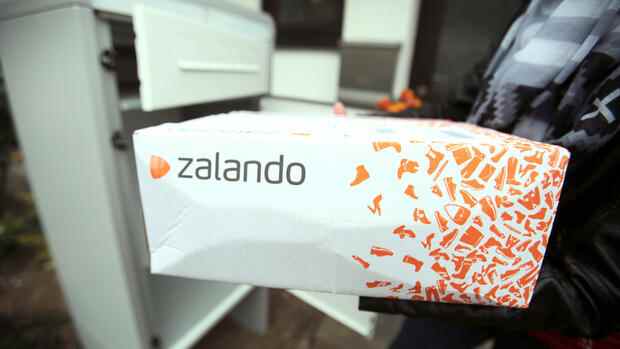Hardly any customers plan the returns, returning the items is too annoying and time-consuming.
(Photo: dpa)
It sounds so simple: If we charge for returns in online retail, then people will send fewer items back. This avoids CO2 emissions when transporting the parcels. Unfortunately, climate protection is not that simple in this case.
On the one hand, the frivolous buying frenzy from the early days of online retailing, when Zalando still advertised with “Shout for happiness – or send it back”, has long since given way to a sober shopping logic. Hardly any customers plan the returns, returning the items is too annoying and time-consuming. Research has shown that it takes consumers an average of 32 minutes to return an order.
As a result, a share in possible return costs will not prevent a customer from buying the wrong product. Nor will any customer be deterred from returning an item that, contrary to expectations, does not like it or does not fit.
In addition, if the customer were forced to pay the actual costs for the return, online trading would come to an immediate standstill. Because on average, the retailer has to spend almost 20 euros for postage, testing, processing and resale for a return shipment. No consumer would be willing to pay for that. On the other hand, return fees of between one and three euros, as are now being demanded by some providers, have no steering effect at all.
Top jobs of the day
Find the best jobs now and
be notified by email.
Technology can help reduce returns
Therefore, there is only one way to reduce the return rate: the customer must be informed as best as possible about the product before purchasing it. Good photos, a perfect description of functions, sizes and fits help to avoid bad purchases. It is also very effective to place customer comments and ratings prominently under the products.
Some large online retailers are already relying heavily on such measures. Unfortunately, many smaller web shops are still a long way from that today. Making progress in this area is far more important than charging money for return shipping.
Last but not least, technology can also help to reduce the number of unnecessary returns. Furniture retailers show rotatable 3D models of their products, and you can place items in your own home using augmented reality. Artificial intelligence provides targeted size recommendations based on previous purchases.
Until now, retailers had often included the return costs in their prices. This is becoming increasingly difficult in view of inflation and consumers’ reluctance to buy. That is why it is in your own interest to exhaust all possibilities so that the customer makes the right decision. Punishing him for making a wrong purchase is not the way to go.
More: Which online retailers charge fees for returns – and which do not
